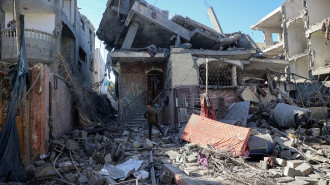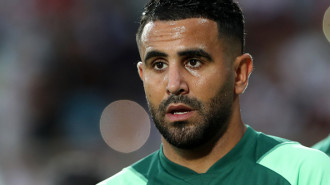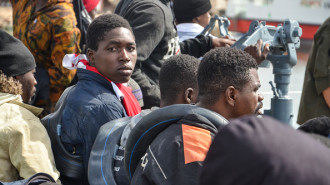Egypt seeks Arab League's support on Ethiopian GERD dispute
Egyptian Foreign Minister Sameh Shoukry urged Arab League leaders on Wednesday to continue to pressure Ethiopia over the Grand Ethiopian Renaissance Dam (GERD) issue.
The call comes after Ethiopia refused to sign a key agreement in trilateral Cairo talks, on the 27th and the 28th of August, despite prior commitments.
"Ethiopia’s unilateral approach to the dam has not changed," Shoukry said at the 160th session of the Arab League's Council of Arab Foreign Ministers in Cairo.
He commended the Arab League's support for Egypt and Sudan and stressed the need for a solution due to the "risks and threats" the situation presents. Shoukry said in his speech that Egypt aims for a peaceful resolution that protects its Nile water rights and national security.
Ethiopia is currently filling the dam for the fourth time, without an agreement among the three countries.
Talks between the three states resumed after President Abdel Fattah al-Sisi of Egypt and Ethiopian Prime Minister Abiy Ahmed announced in July their intention to reach an agreement on the GERD operation within four months.
Egypt expressed concerns over the dam's operation without considering its requirements, calling it an existential threat to the country.
As the Arab world's most populous nation, Egypt heavily depends on the Nile for its agricultural water supply, with around 85 percent of the river's flow originating from Ethiopia.
In recent remarks, President Sisi described the population surge, now exceeding 104 million, as an increasingly unaffordable burden for Egypt, which is currently struggling with significant economic challenges.







 Follow the Middle East's top stories in English at The New Arab on Google News
Follow the Middle East's top stories in English at The New Arab on Google News


